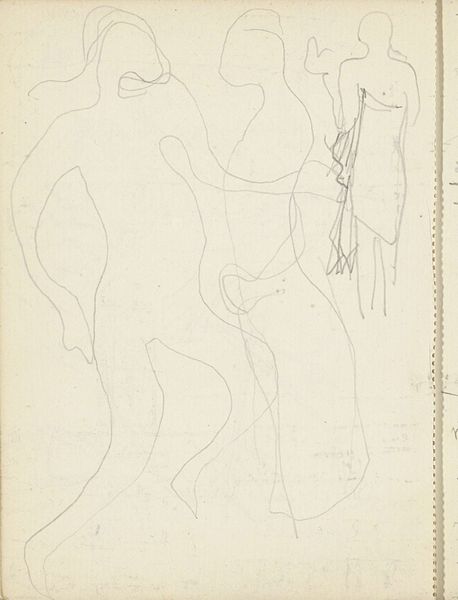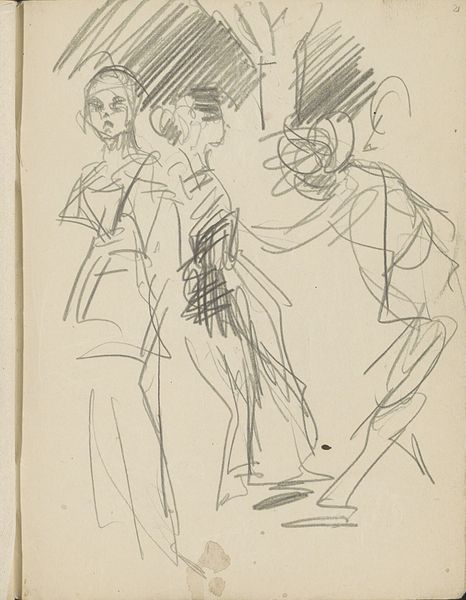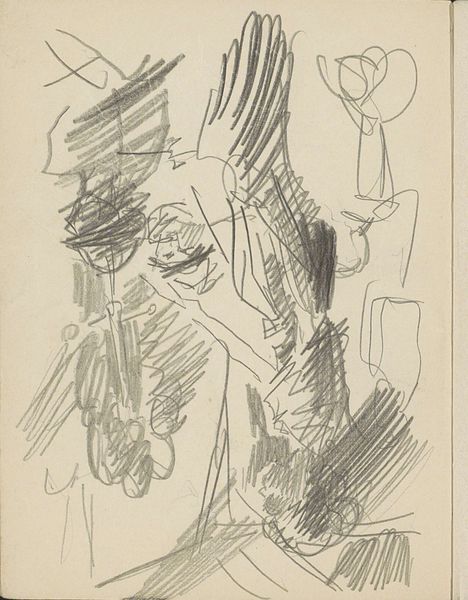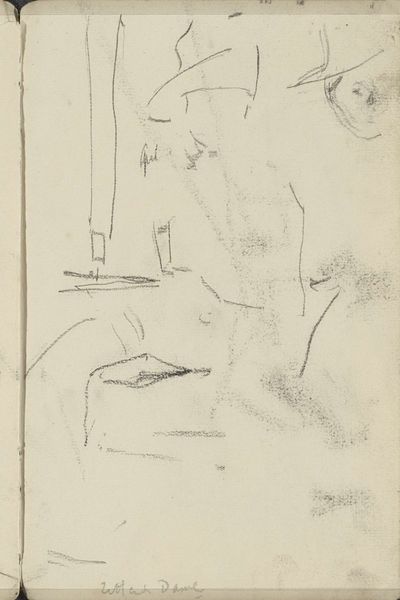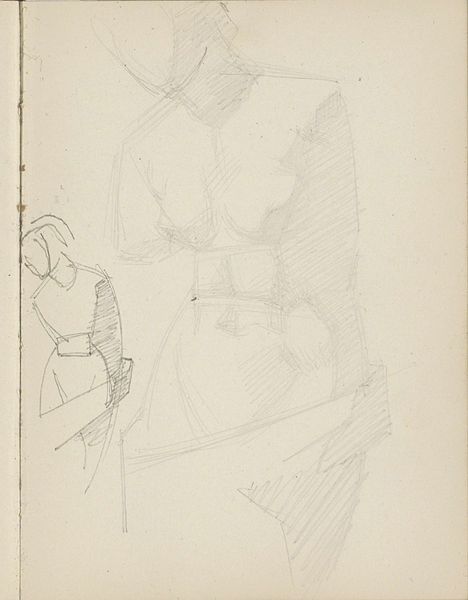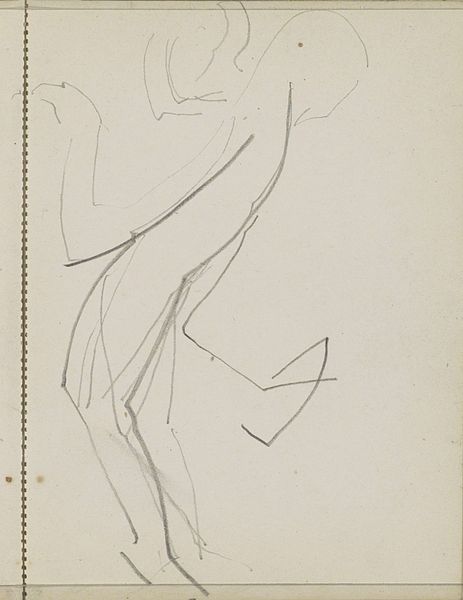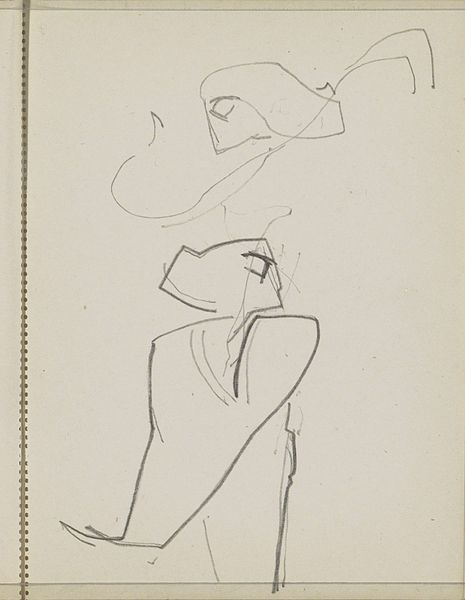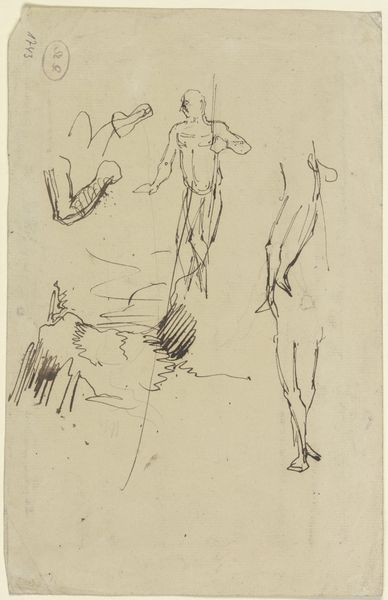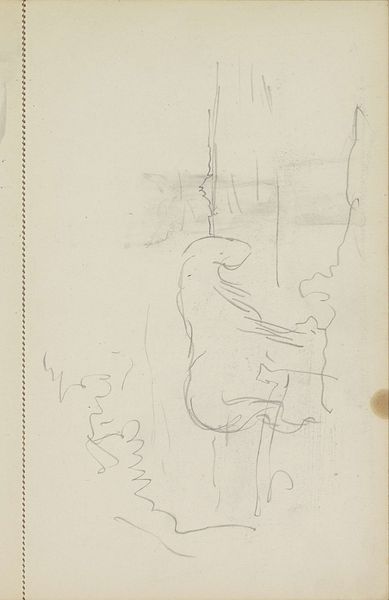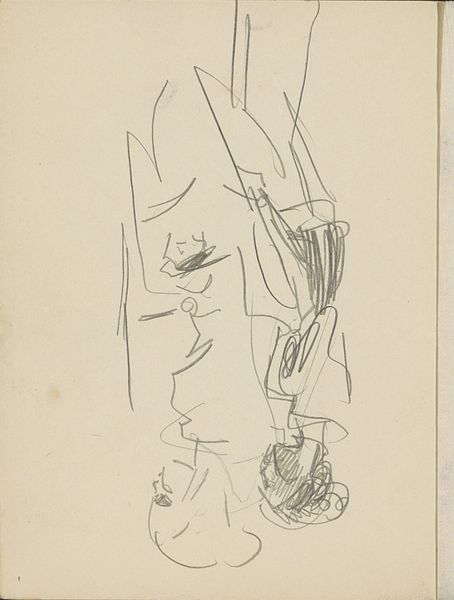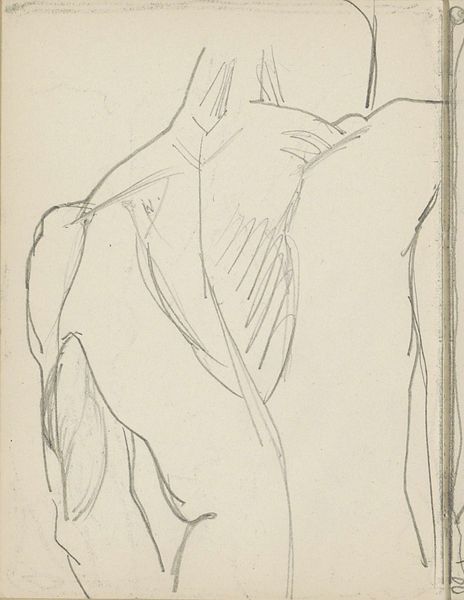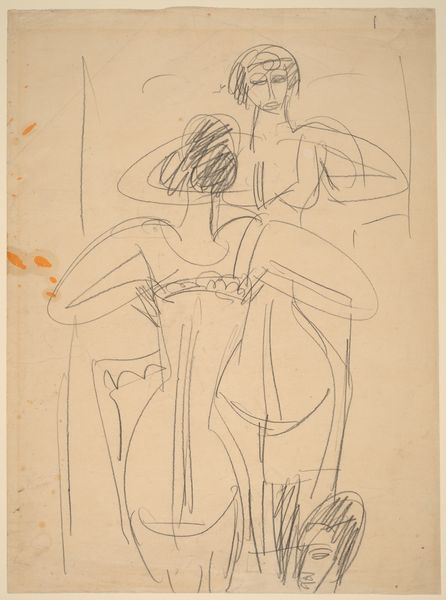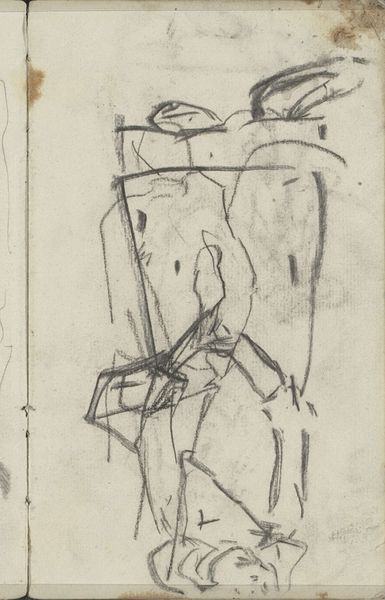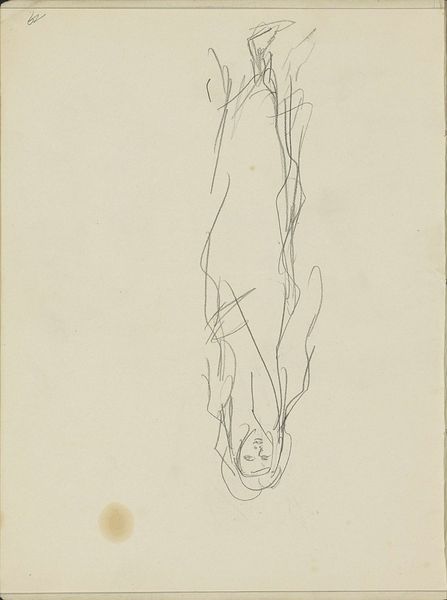
drawing, paper, pencil
#
portrait
#
drawing
#
comic strip sketch
#
imaginative character sketch
#
cartoon sketch
#
figuration
#
paper
#
personal sketchbook
#
idea generation sketch
#
ink drawing experimentation
#
pen-ink sketch
#
pencil
#
sketchbook drawing
#
genre-painting
#
storyboard and sketchbook work
#
sketchbook art
Copyright: Rijks Museum: Open Domain
Editor: This is "Afrikaanse vrouwen met hoofddoeken en een schaal," or "African women with headscarves and a bowl," a pencil drawing by Reijer Stolk from somewhere between 1916 and 1945. It's striking how simple the lines are, almost like a quick study. What can you tell me about it? Curator: It is indeed simple, isn't it? Considering the timeframe, it's vital to acknowledge the colonial lens often applied when European artists depicted people from Africa. A piece like this raises questions about representation. Was Stolk trying to document reality, or was he creating an imagined version of African women filtered through a Western perspective? How do you interpret the women’s gazes or the significance of the bowl? Editor: I see your point. Their faces are obscured, almost anonymous. The bowl… maybe it represents something domestic, reducing them to a certain role? But is that my modern bias influencing my reading? Curator: Exactly. Consider the broader societal context. During the colonial era, images of people from colonized nations were often used to reinforce power dynamics. This drawing, even as a seemingly innocent sketch, could participate in that visual rhetoric. We must be cautious about romanticizing or exoticizing these representations without critically examining their historical baggage. Does the inscription on the side of the sketch give you any insight into what Stolk may have been trying to accomplish here? Editor: Now that I look closer at the writing, I wonder what Stolk wanted to convey through this piece, and if it was successful. The way we consume art has drastically changed and is still evolving. Curator: Precisely! It underscores the importance of understanding not just *what* an artwork depicts but *how* and *why* it was created and received. Even simple sketches can open up complex dialogues about power, representation, and historical context. Editor: I will look more deeply into those ideas in the future! This definitely gave me a lot to think about. Thanks!
Comments
No comments
Be the first to comment and join the conversation on the ultimate creative platform.
